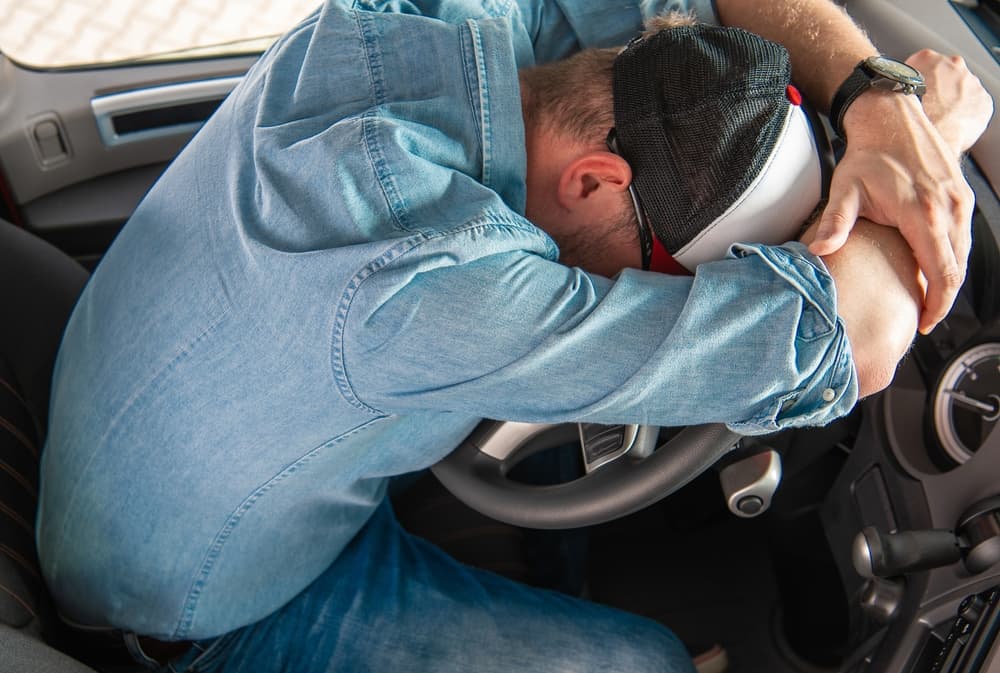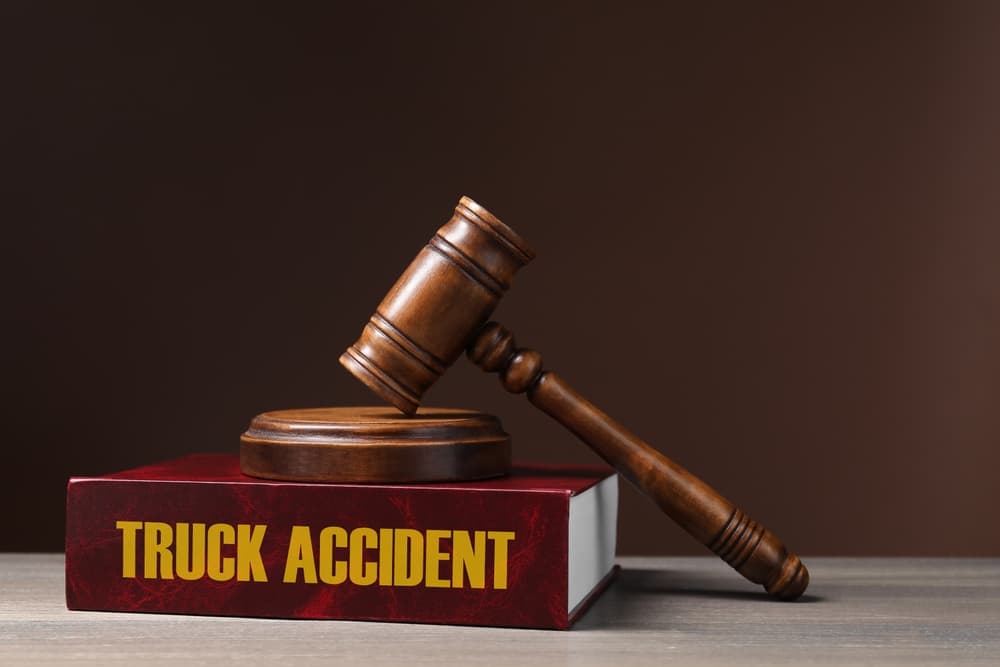A truck accident can change your life in an instant. One moment, you’re driving to work, running errands, or heading home, and the next, you’re dealing with serious injuries, a totaled vehicle, and medical bills piling up. If you lost a loved one in a crash caused by a negligent truck driver, no amount of money can bring them back. However, holding the responsible party accountable can provide justice and financial security for your family.
Truck accident claims involve more than just exchanging insurance information and filing a claim. These cases often require in-depth investigations, a deep understanding of federal and state regulations, and negotiations with trucking companies and their insurers—who are more concerned about their bottom line than your recovery. That’s why you need a truck accident lawyer to handle your claim and fight for the compensation you deserve. A truck accident attorney can gather evidence, deal with insurers, and ensure the at-fault party takes responsibility.
If a negligent truck driver or trucking company caused your injuries or a loved one’s wrongful death, don’t go through this alone. Contact a truck accident attorney near you for a free consultation and learn about your options.
Injured? Get Nicolet.
Truck Accident Statistics

Truck accidents happen far too often, and the consequences are severe. According to the latest truck crash statistics from the National Safety Council (NSC):
- 5,837 large trucks were involved in fatal crashes in a recent year, reflecting a staggering 49% increase over the past decade.
- Large commercial trucks represent 6% of all vehicles involved in fatal crashes and 10% of the total vehicle miles traveled.
- More than 120,000 large trucks were involved in injury crashes nationwide during this same time.
- The number of large trucks involved in injury accidents has increased by 18% over the past eight years.
Large trucks are classified as medium or heavy vehicles with a gross weight exceeding 10,000 pounds (excluding buses and motorhomes) and include both commercial and non-commercial vehicles.
Wisconsin and Minnesota see a significant number of truck accidents each year, especially in areas with heavy commercial traffic. Highways such as I-94, I-35, and U.S. Route 53 see frequent crashes involving semi-trucks. Rural roads also pose dangers, as trucks travel at high speeds on two-lane highways with limited room to maneuver.
Why Truck Accidents Are Different
Truck accident claims involve more than just determining fault and filing an insurance claim. The size and weight of commercial trucks make collisions especially severe, leading to significant injuries and extensive property damage. Additionally, trucking companies, drivers, and insurers often work aggressively to limit their liability, making it harder for victims to recover full compensation. Several factors set truck accident claims apart from other vehicle accident cases.
The Harm Truck Accidents Cause
A fully loaded semi-truck can weigh 20 times more than a typical passenger car. When a crash happens, the impact often causes severe injuries, such as traumatic brain injuries, spinal cord damage, fractures, and burns. Many victims require long-term medical care, rehabilitation, and assistance with daily activities. Some never regain the independence they had before the accident.
Fatal truck accidents also devastate families. Losing a loved one unexpectedly brings not only emotional suffering but also financial strain, especially if the deceased provided income or caregiving support. Holding the responsible party accountable can provide the compensation needed for medical expenses, lost wages, and funeral costs.
Legal and Insurance Complexities in Truck Accidents
Truck accident cases often involve multiple parties, making it harder to determine liability. The truck driver may have been reckless, but the trucking company could also share responsibility if they allowed unsafe practices. Cargo loaders, maintenance providers, and even truck manufacturers might also play a role if an equipment failure or improper loading contributed to the crash.
Insurance companies representing trucking businesses have significant resources to dispute claims. They may argue that the victim was partially at fault or downplay the extent of injuries. Without strong legal representation, accident victims may struggle to recover fair compensation.
Trucking Regulations and Other Factors
Unlike standard car accidents, truck accident cases involve federal and state regulations. The Federal Motor Carrier Safety Administration (FMCSA) sets rules on truck maintenance, hours of service, and driver qualifications. If a driver exceeded their allowed hours or a trucking company failed to perform required inspections, those violations could affect liability.
State laws also play a role. Every state has its own trucking regulations that often align with federal standards. Additionally, each state has its own statute of limitations, which determines the time you have to file a truck accident claim.
A truck accident lawyer understands these complexities and knows how to investigate whether rule violations contributed to a crash. Holding all responsible parties accountable ensures victims receive the full compensation they deserve.
Common Causes of Truck Accidents
Truck accidents happen for many reasons, but most result from preventable mistakes, reckless behavior, or violations of safety regulations. Whether caused by driver error, mechanical failure, or hazardous road conditions, these crashes often have devastating consequences.
Driver Fatigue

Long hours on the road put truck drivers at risk of fatigue, which slows reaction times, reduces awareness, and increases the likelihood of falling asleep while driving. Federal regulations limit the number of hours truckers can drive before taking a break, but some drivers ignore these rules due to tight deadlines or pressure from their employers. Fatigue-related truck crashes frequently occur on long-haul routes where drivers push themselves to cover more miles without proper rest.
Distracted Driving
Operating an 18-wheeler requires full attention, but distractions like texting, using a GPS, eating, or adjusting the radio take a driver's focus away from the road. Even a few seconds of inattention can lead to a catastrophic crash, especially if the truck is traveling at highway speeds. Unlike passenger cars, commercial trucks require significantly more time and distance to stop, making distraction even more dangerous.
Improper Truck Maintenance
Trucking companies and drivers must perform routine inspections and maintenance to ensure that their vehicles are safe. Worn-out brakes, underinflated tires, and steering system failures can lead to deadly accidents. Ignoring maintenance requirements or skipping inspections puts everyone on the road at risk. In some cases, trucking companies cut corners to save money, leading to mechanical failures that could have been prevented.
Impaired Driving
Alcohol, illegal drugs, and even prescription medications impair a driver’s ability to react and make safe decisions. Although commercial drivers must follow stricter regulations regarding alcohol consumption—such as a lower legal blood alcohol concentration (BAC) limit—some still get behind the wheel under the influence. Stimulants used to stay awake on long trips can also cause erratic driving behavior and lead to severe crashes.
Adverse Weather
Rain, snow, ice, and fog make roads more dangerous, especially for large trucks with heavy loads. Slippery surfaces reduce traction, increasing the chances of jackknife accidents or rollovers. Poor visibility also makes it harder for truck drivers to see other vehicles. Safe driving in bad weather requires reducing speed, increasing following distance, and using caution, but not all truck drivers take the necessary precautions.
Each of these factors increases the risk of a severe truck accident. When drivers, trucking companies, or other responsible parties fail to follow safety rules, they should be held accountable for the harm they cause.
Why You Need a Truck Accident Lawyer After a Crash
A truck accident can leave victims struggling with serious injuries, financial uncertainty, and an uphill battle with insurance companies. Trucking companies and their insurers often work quickly to minimize their liability, making it difficult for victims to get the compensation they deserve. An experienced truck accident lawyer takes on these challenges, handling every aspect of the case while victims focus on healing.
Thorough Investigation of the Crash
Building a strong case starts with gathering solid evidence. A lawyer investigates the crash by:
- Obtaining black box data from the truck, which records speed, braking, and other critical details
- Reviewing dashcam or traffic camera footage
- Examining driver logs for hours-of-service violations
- Analyzing truck maintenance records to check for mechanical failures
- Interviewing witnesses and working with accident reconstruction experts
By uncovering all contributing factors, a lawyer can identify every liable party and strengthen the claim.
Navigating State-Specific and Federal Laws
Truck accidents involve a mix of state and federal regulations that impact liability and compensation. Laws vary by state, making legal knowledge essential for protecting victims' rights.
- Minnesota: The statute of limitations for personal injury claims is generally six years.
- Wisconsin: Victims typically have three years to file a lawsuit.
- Iowa: You must file a personal injury lawsuit within two years of the crash.
- North Dakota: You have six years from the date of the accident to file a claim.
- Federal laws: The FMCSA enforces rules on trucking hours, maintenance, and safety standards.
A lawyer ensures that all legal deadlines are met and that violations of state or federal laws are used to strengthen the claim.
Negotiating with Insurance Companies
Trucking companies and their insurers prioritize their profits over fair compensation. Insurance adjusters often try to minimize payouts by blaming the victim, disputing the severity of injuries, or offering settlements that don’t cover long-term medical costs. A lawyer pushes back against these tactics, using evidence to demand full compensation for medical bills, lost income, and other damages.
Building a Strong Case for Court (If Necessary)
If insurance companies refuse to negotiate fairly, a lawyer prepares the case for trial. This includes gathering medical records, expert testimony, and financial statements to show the full impact of the accident. Many cases settle before trial, but having a strong courtroom strategy puts pressure on the insurance company to offer a reasonable settlement.
Helping You Avoid Mistakes
Insurance companies look for ways to weaken a claim. A lawyer helps clients avoid pitfalls such as:
- Giving recorded statements that could be used against them
- Accepting a low settlement too soon
- Posting details about the accident or injuries on social media
- Missing critical deadlines for legal action
From the moment a lawyer takes the case, they focus on protecting the client’s rights and securing the best possible outcome. Holding negligent trucking companies accountable requires a strong legal strategy, and the right attorney ensures victims don’t have to face the legal battle alone.
Damages You Can Pursue After a Truck Accident

Truck accident victims can seek compensation for various losses, including:
Economic Damages
These include medical expenses, lost wages, rehabilitation costs, and future lost earnings if the injuries prevent a return to work.
Non-Economic Damages
Pain and suffering, emotional distress, and loss of enjoyment of life fall under this category. These damages recognize the impact an accident has beyond financial losses.
Punitive Damages
In cases involving reckless or intentionally malicious misconduct, courts may award punitive damages to punish the responsible party and deter similar behavior.
Wrongful Death Damages
Families who lose a loved one in a truck accident can pursue compensation for funeral expenses, lost financial support, and the emotional loss of a spouse, parent, or child. It's important to keep in mind that in wrongful death cases, non-economic damages can come with a cap, depending on whether the deceased was a minor or an adult.
Protecting Victims Along Wisconsin and Minnesota’s Trucking Corridors
Major highways in Wisconsin and Minnesota see heavy commercial truck traffic. In Wisconsin, I-94, I-43, and Highway 41 are known for high truck volumes. In Minnesota, I-35, Highway 52, and U.S. Route 10 are common sites for serious truck crashes. Truck accident attorneys familiar with these routes understand the risks and work to hold negligent drivers and companies accountable.
How Much Does a Truck Accident Lawyer Cost?
Most truck accident lawyers work on a contingency fee basis, meaning clients don’t pay upfront. Instead, legal fees come from the compensation recovered. This allows accident victims to pursue justice without worrying about legal costs.
Contact a Trusted Truck Accident Attorney Today

Nicolet Law Accident & Injury Lawyers fights for truck accident victims in Wisconsin, Minnesota, North Dakota, and Iowa. With a history of securing fair compensation for injured clients, our team understands the tactics insurance companies use, and we know how to counter them. If a truck accident disrupted your life, contact Nicolet Law Accident & Injury Lawyers today for a free consultation. Let us handle the legal process while you focus on recovery. You can rely on us to do all we can to help you obtain the maximum compensation available.
